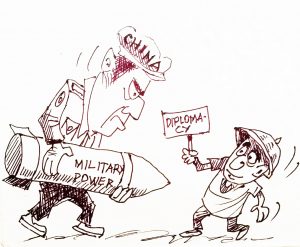It cannot be denied that tensions in the West Philippine Sea have escalated primarily due to China’s increasingly assertive actions in the West Philippine Sea. The Philippines, a key player in this geopolitical hotspot, has faced numerous provocations from its powerful neighbor. Despite these challenges, the Philippine government has steadfastly pursued a path of diplomacy and peaceful resolution, underscoring the nation’s commitment to international law and highlighting the importance of maintaining regional stability.
The West Philippine Sea is a vital maritime area rich in resources and strategic importance. China’s expansive territorial claims, encapsulated in the so-called “nine-dash line,” have been a source of contention with some Southeast Asian nations, including the Philippines. In 2016, the Permanent Court of Arbitration in The Hague ruled in favor of the Philippines, invalidating China’s claims. However, China has largely ignored this ruling, continuing its militarization and construction of artificial islands in the region.
Amid these provocations, the Philippines has chosen to adhere to diplomatic channels and international legal frameworks. President Ferdinand Marcos Jr., following the stance of his predecessors, has emphasized the need for a rules-based order in the South China Sea. By engaging in dialogue with China and other ASEAN countries, the Philippines aims to foster mutual understanding and cooperation. This diplomatic approach is crucial in preventing the escalation of conflicts that could destabilize the entire region.
Furthermore, its strategic alliances with other nations complement the Philippines’ diplomatic efforts. The United States, a long-time ally, has provided substantial support through military cooperation and joint exercises. These alliances deter further aggression, signaling that the Philippines is not alone in its pursuit of peace and stability. Additionally, the country’s engagement with international organizations, such as the United Nations, underscores its commitment to a multilateral approach to resolving disputes.
This firm stance on diplomacy amid China’s provocations in the West Philippine Sea is a testament to our dedication to peace and international law. The Philippines not only upholds its sovereignty but also contributes to regional stability. This approach, supported by strategic alliances and a commitment to a rules-based order, exemplifies a responsible and pragmatic response to a complex geopolitical challenge. This approach prevails.




